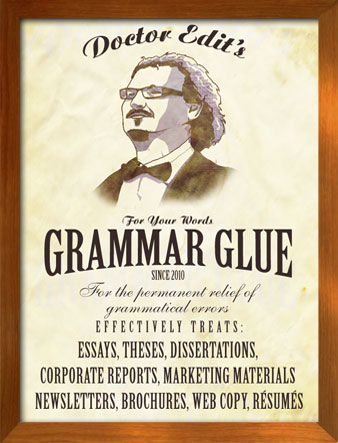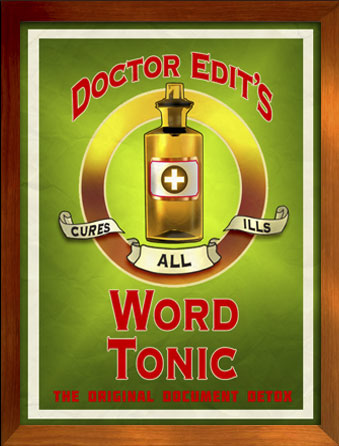As well as offering proofreading services for students, I also provide editing services for academics, both in New Zealand and overseas.
Since 2008, I’ve copyedited around 200 academic books, many published by university presses such as Harvard, Cornell, and Princeton. I’ve also worked on a range of books by publishers such as Routledge, Radcliffe (medical) and the Wharton School Press (business).
Titles I have copyedited include Umberto Eco, From the Tree to the Labyrinth: Historical Studies on the Sign and Interpretation (Harvard University Press, 2014) and Frank Krutnik, Thrillers, Chillers, and Killers: Radio and Film Noir (Rutgers University Press, 2025). My versatility has seen me work on books as varied as The Personal Memoirs of Ulysses S. Grant (Harvard University Press, 2017) and Angela Jackson’s The Win-Win Workplace: How Thriving Employees Drive Bottom-Line Success (Berrett-Koehler, 2025).
Since 2012, I’ve edited and proofed hundreds of articles published in a range of local and international peer-reviewed journals. Disciplines I have worked in vary from engineering to translation studies to Indigenous languages and cultures. Journals I’ve edited and proofread for include AlterNative: An International Journal of Indigenous Peoples, New Zealand Sociology and Humanities and Social Sciences Communications, which cover a wide range of subjects.
Hire an academic to edit your academic writing
As an academic myself, I have published internationally on Shakespeare, specifically the authorship debates surrounding the early history plays. My PhD thesis was published as When Harey Met Shakespeare: The Genesis of The First Part of Henry the Sixth (VDM Verlag, 2008). My research heavily influenced the Oxford Shakespeare project in changing their position on the date and collaborative authorship of 1 Henry VI.
Having had my own work published in peer-reviewed journals, I know academic publishing from both sides of the equation. My editing services for academics will help you maximise the potential of your research.
Editing services for academics with English as a second language
I specialise in assisting authors with English as a second language to meet the submission requirements of academic journals. After my editing, their writing reads and flows like that of native English speakers. This considerably improves the chances of their articles being accepted for publication.
Frequently asked questions
1. What kinds of academic writing do you edit?
I work with a wide range of academic documents, including:
- Journal articles
- Research proposals
- Conference papers
- Book chapters and monographs
- Grant applications
- Academic job materials (CVs, cover
letters, research and teaching statements) - Academic blog posts or public scholarship
If you’re unsure whether your project fits, feel free to ask!
2. What types of editing do you offer for academic writing?
Editing services for academics typically fall into three levels:
- Developmental or structural editing: Focuses on big-picture issues like argument clarity, organisation, flow, structure and coherence.
- Line or stylistic editing: Focuses on sentence-level clarity,
academic tone, conciseness, and readability. - Copyediting: Focuses on grammar, spelling, punctuation, formatting, consistency, and minor style corrections (often following specific style guides like APA, Chicago Manual of Style, MLA, etc.
- Proofreading: Applies the final polish before submission, publication or printing and focuses on surface-level errors and presentation details.
I can provide one service or a combination, depending on what your project needs.
3. Do you edit for content or subject expertise?
My role is to strengthen your communication, not evaluate your research findings or technical content. While I work across many disciplines, I don’t replace subject-specific peer review. I focus on making your ideas clear, compelling and well-structured for your intended audience.
4. Can you help if English is not my first language?
Absolutely! As noted above, I frequently work with scholars for whom English is an additional language. My editing focuses on preserving your voice while improving clarity, fluency and academic style.
5. Will you make sure my writing follows a particular style guide (APA, Chicago, MLA, etc.)?
Yes, I can edit to conform to major academic style guides – or to a specific journal’s submission guidelines. Just let me know your requirements.
6. Can you help me reduce word count for a journal or grant requirement?
Yes, trimming word count while preserving meaning and clarity is a common part of academic editing. I’ll identify redundancies, tighten sentences, and suggest ways to condense without losing essential content.
7. Will you check my references or bibliography?
Yes, I can check for consistency in formatting and flag missing elements in your references or bibliography – but I do not fact-check citations or verify every source unless specifically requested (this would involve a separate fee).
8. Is your editing considered ethical for academic work?
Yes. Academic editing is an accepted professional service when it focuses on clarity, structure, language and style – not on creating content or falsifying data. I follow the ethical guidelines recommended by editing associations and academic institutions. (Always check your institution’s policies if you’re unsure.)
9. Can you guarantee acceptance to a journal or approval of my thesis?
No editor can ethically guarantee publication or acceptance. But I can help you submit your strongest, clearest, most polished version – improving your chances of success.
10. How does the academic editing process work?
Here’s a typical process:
- You send me your document (or a sample)
and explain your goals. - I assess the project and send you a quote
and timeline. - I edit your work using tracked changes and
comments in Word. - You review my suggestions and make final
decisions. - I can review your revisions if needed
(additional rounds are available).
11. How long does academic editing take?
Turnaround time depends on:
- Word count
- Editing depth
- My current schedule
- Your deadline
Typical ranges:
- Journal articles: 3–5 days.
- Theses and dissertations: 1–2 weeks.
- Rush projects: Available for an additional
fee (if schedule allows).
12. How much does academic editing cost?
Rates vary depending on the project, length, and level of editing required. I will give you a free quote after reviewing your document.
13. Can you help me with my academic CV, cover letter, or job materials?
Definitely. I offer editing for academic job documents, helping you tailor materials for faculty positions, postdocs, or research roles.
14. What software do you use to edit?
Most editing services for academic are done in:
- Microsoft Word (using Track Changes and
Comments) - PDF (for proofreading final versions)
15. Will my work remain confidential?
Absolutely. I treat all client materials with strict confidentiality and never share your work without your permission. I’m happy to sign an NDA (non-disclosure agreement) if needed.
16. Can you help me with resubmissions or reviewer comments?
Yes! I can help you respond professionally and effectively to peer review comments, revise for clarity, and strengthen resubmissions.


